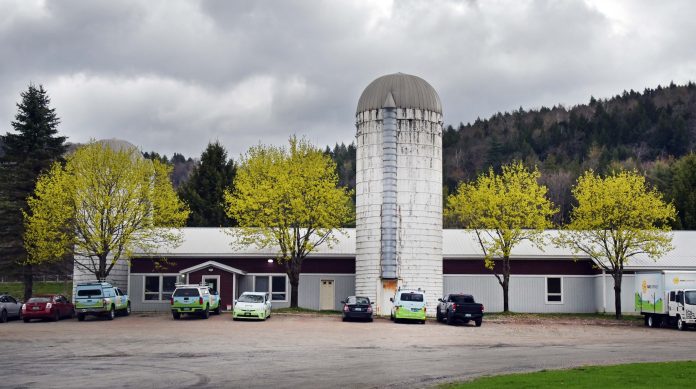One of Vermont’s largest publicly traded companies has filed for bankruptcy.
iSun, the Williston-based solar energy company, is seeking permission to sell off its assets after years of financial woes, according to federal bankruptcy court filings. iSun is the parent company of SunCommon, a solar panel installer based in Waterbury.
Jeff Peck, iSun’s CEO, wrote in a court filing supporting the June 3 bankruptcy petition that iSun has not turned a profit for two years. He said the company, which operates throughout New England, has been “on the precipice of shutting down.”
iSun incurred a net loss of $19.4 million in 2023, Peck told the court, after a net loss of $53.8 million in 2022. This year, the company is forecasting a $10 million net loss, he said — adding that it’s currently losing money at a rate of $250,000 a week.
The company’s stock, meanwhile, was delisted from the Nasdaq Stock Market late last month.
iSun’s bankruptcy filing comes after months of executive turnover. Peck was replaced by Robert Zulkoski as CEO in March but was reappointed to the post a month later. Chief financial officer John Sullivan parted ways with the company in March.
The company is also facing litigation filed by a former executive and two former consultants late last month in Chittenden County Superior civil court alleging wrongful termination.
In response to an interview request Monday, an iSun spokesperson emailed a statement from Peck calling the company’s bankruptcy filing “the best path forward.”
“This process will enable us to restructure our finances and operations to ensure our long-term sustainability and competitiveness,” Peck said in the statement, adding that iSun is “committed to minimizing any disruption to our employees, customers, and vendors.”
Meanwhile, “operations will continue as usual” at SunCommon during the proceedings, said James Moore, that company’s president, in the same emailed statement.
iSun purchased SunCommon for $40 million in 2021 in an effort to gain a foothold in the residential solar installation market. iSun also makes electric vehicle charging stations and solar panel canopies, and it offers commercial electrical contracting services.
In court documents, Peck said high interest rates have contributed to the company’s financial issues. He said they’ve increased the company’s costs in recent years — and made it less attractive for potential customers to finance new solar energy systems.
Analysts have pointed to high interest rates as one of several challenges facing the solar industry this year. A November 2023 report by the energy industry analysis firm Wood Mackenzie found the average annual percentage rate on a loan for solar projects increased from 2.5% in the second half of 2022 to more than 6% a year later.
Still, the leader of one industry group in Vermont said he doesn’t think troubles at iSun are indicative of a larger trend within the solar industry in the state.
“It seems to me that many companies are still out there, able to make a go of it and install solar,” said Peter Sterling, executive director of Renewable Energy Vermont, in an interview Monday. “People who want to go solar are still able to do it.”
At the time of its bankruptcy filing last week, iSun had 196 employees, court records show.
If the company’s plans are approved in court, the records show, its assets would be acquired by an affiliate of Texas-based energy investment firm Siltstone Capital.






